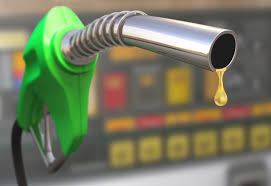The Ministry of Energy has officially confirmed that the controversial GH₵1 fuel levy will come into effect on Wednesday, July 16, 2025, marking a significant step in the government’s bid to stabilise Ghana’s financially distressed energy sector.
Levy Implementation Date Set
Speaking on Joy FM’s Super Morning Show on Friday, spokesperson for the Ministry, Mr. Richmond Rockson, reaffirmed the implementation date after weeks of speculation.
“We will start on Monday, (July 16),” Mr. Rockson stated, adding that the levy was not optional but a critical fiscal tool to safeguard the country’s long-term energy sustainability.
Inherited Challenges in Energy Sector
Mr. Rockson noted that the current administration inherited a power sector plagued by accumulated debts and operational inefficiencies spanning across the upstream, midstream, and downstream segments.
“This government inherited a very difficult energy sector, and it is not just the power sector—the petroleum sector as well. It will take all of us as citizens to sacrifice to be able to bring the sector back,” he said.
The Ministry explained that the levy is expected to shore up resources for clearing arrears owed to independent power producers and boosting investment in energy infrastructure.
Read Also: Breakthrough Malaria drug approved for newborns in Africa
Public Opposition and Economic Concerns
The announcement of the GH₵1 per litre fuel levy several months ago drew sharp criticism from various stakeholders, including opposition political parties, consumer rights groups, and civil society organisations.
Many argue that the new charge will further burden Ghanaians already grappling with inflation and a high cost of living, particularly in the transportation and agricultural sectors where fuel prices directly impact goods and services.
Despite the backlash, the Ministry maintains that tough decisions are required to avoid a collapse of the power supply system and prevent rolling blackouts (dumsor) from resurfacing.
GRA to Handle Levy Collection
As part of implementation logistics, the Ghana Revenue Authority (GRA) has been authorised to oversee the collection of the levy at all fuel retail points nationwide.
The Ministry indicated that systems have been tested and are ready to ensure seamless integration into pump pricing from the launch date.
Looking Ahead
While no timeline has been provided for how long the levy will remain in place, officials say it will be monitored and reviewed periodically based on its impact on revenue mobilisation and energy sector recovery.
The Energy Ministry is expected to hold a series of stakeholder engagements and public briefings in the coming days to provide clarity on how funds raised will be used, and what accountability mechanisms are in place.

























